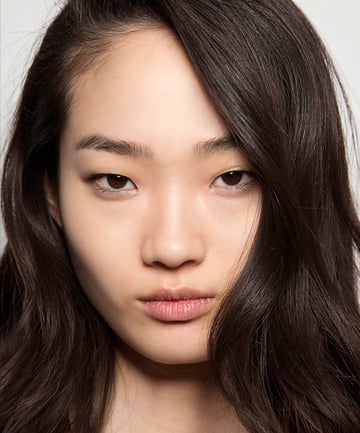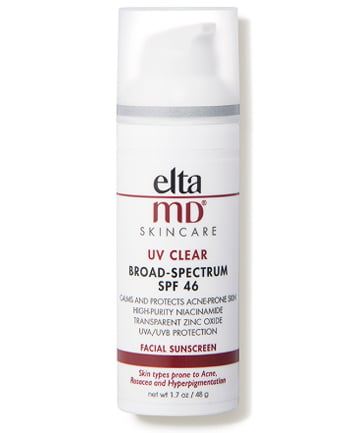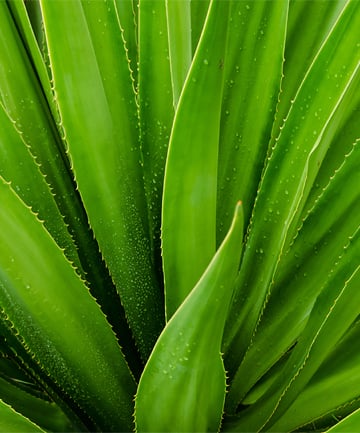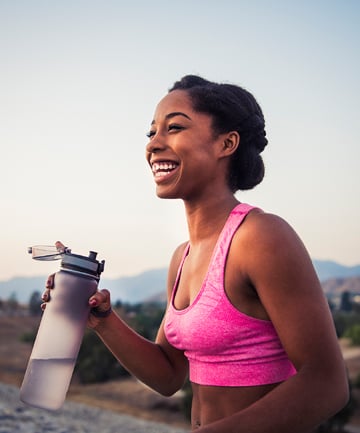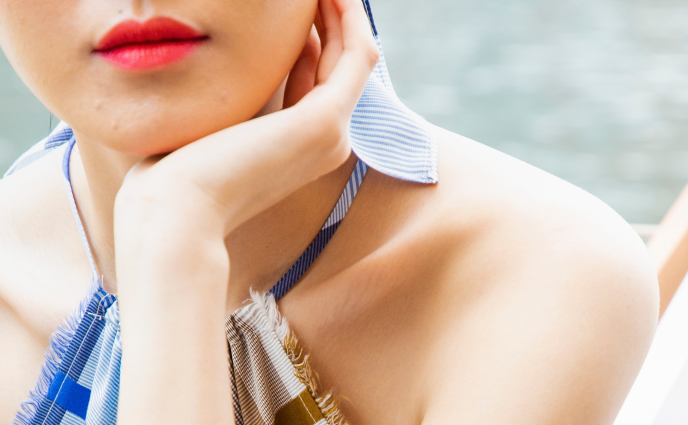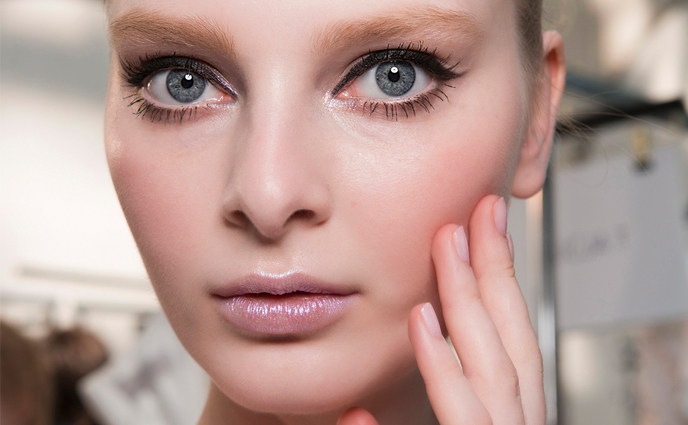One of the downsides of summer is that all that heat and humidity can leave you with a seriously shiny face. You can combat that with the right products, though. "Mattifying your face in the summer can be done with certain products that will actually absorb oil from your face," says Pruett. "This will let you mattify while you are protecting your skin from the skin cancer and aging ultraviolet rays that are stronger in the summer," says Pruett.
Image via Imaxtree
If there's one step you shouldn't skip in your summer skin care routine, it's applying sunscreen. Spending time in the sun sans protection can not only lead to sunburn, it can also cause premature signs of aging like wrinkles and dark spots. "You should apply sunscreen every day, even on a cloudy day," says Pruett. That's because 80 percent of the sun's rays will reach your skin through the clouds. Dermatologists recommend reaching for an SPF of 30 or higher. Reapply at least every two hours while exposed to the sun, immediately after swimming or sweating, and when you're going outside after having been inside for two hours or more, advises King. Since most people don't slather on enough, "a good rule is to do two consecutive applications of sunscreen, especially before hitting the pool or beach, to get you closer to the protection that your sunscreen bottle claims," says Pruett.
Try EltaMD UV Clear Broad-Spectrum SPF 46, which protects against both UVA rays (the ones that cause aging) and UVB rays (the ones that burn) and is available in untinted and tinted versions. Specifically formulated for acne- and sensitivity- prone skin types, this sunscreen has an oil-free, fragrance-free formula that calms skin and leaves no residue. 9 percent transparent zinc oxide shields skin from the sun, while niacinamide, hyaluronic acid, and lactic acid, promote healthy, glowing skin.
Just remember: Sun protection goes beyond sunscreen. "Other sun safety should be practiced on an every day basis as well, including wearing protective clothing, UV shielding sunglasses, and a broad brimmed hat, seeking shade, and avoiding peak UV hours," says King.
The best way to remedy a sunburn is to not get burnt in the first place. "One blistering sunburn in your childhood almost doubles your lifetime risk of melanoma, and getting five blistering sunburns between the ages of 15-20 gives you a 80 percent increased risk of melanoma and almost 70 percent increased risk of basal cell and squamous cell skin cancers," notes Pruett. But if you do find yourself with a sunburn, "you should absolutely stay away from the sun until completely recovered and keep cooling the skin with cool water soaks, stay well hydrated with plain, cold water, and eat foods with lots of antioxidants, fruits and vegetables," says Tonkovic-Capin. King adds that oral anti-inflammatory meds like aspirin can reduce inflammation. Avoid harsh cleansers that can further dry out your skin, and "use a moisturizer that contains aloe vera or soy to help soothe the burn," says King. "A 1 percent hydrocortisone cream can also be helpful for areas that feel particularly uncomfortable."
Image via Sebli Ayie/EyeEm/Getty
It's easy to get overheated, and become uncomfortable, in the summer heat. To keep your skin cool, hydration is a must, says Tonkovic-Capin. Make sure you're drinking plenty of water to replace fluids lost through sweating. You should also wear loose clothing to allow for easy circulation between your skin and clothing, adds Tonkovic-Capin. King recommends using a jade or rose quartz roller. "The stone naturally stays cool," she says. "You can also place it in the refrigerator for extra cooling." Another way to cool your skin down: Pop an aloe cooling gel into the fridge and apply it whenever you get too hot.
Image via The Good Brigade/DigitalVision/Getty



